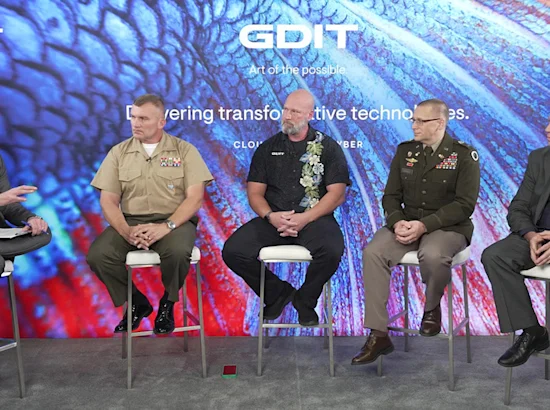When crises emerge in remote corners of the world, Coalition Forces need the ability to mount an immediate and coordinated response. Doing that depends on timely and accurate information sharing. Two critical elements make that possible: Identity Credentialing and Access Management, or ICAM, and Mission Partner Environments, or MPEs.
ICAM solutions are essential in connecting people with the resources and information they need through the verification of their credentials. As such, ICAM is a powerful and enabling capability that sits at the core of interoperability. MPEs are environments where mission partners can coordinate and collaborate, and ICAM speeds decision making and makes them more secure, thus advancing the vision set forth by the Combined Joint All-Domain Command and Control (CJADC2) initiative.
ICAM Is at the Core of Interoperability in MPEs
When it comes to MPE in particular, ICAM plays an important role in aligning credentials with data, ensuring need-to-know and need-to-access is achieved in a secure manner in an environment where most, if not all, information is Secret or higher in classification. There is an inherent need for protection and access control to ensure only those with appropriate permissions gain access to information. ICAM meets that need.
As MPEs evolve and implement fewer manual processes in order to enable faster decision making, the need for interoperability of mission systems is more apparent than ever. ICAM enables that interoperability by ensuring secure access to only those authorized to have it.
MPEs and CJADC2 Are Close Analogs; ICAM Enables Both
At the end of the day, MPEs and CJADC2 are close analogs. CJADC2 was created to connect the entire Department of Defense ecosystem and MPE is about ensuring we can connect with mission partners in a secure and seamless way across applications, services. and mission-connected capabilities. ICAM is central to both efforts.
CJADC2 has created the expectation that information should be sharable – securely– across all environments. Information should be available and accessible and should transit a network as quickly as possible when it’s needed. This mindset is informing how to develop next-generation, data centric MPE that ICAM enables. The intention now is to build persistent, long-standing networks, rather than episodic ones, which can be used for a variety of missions. ICAM can establish linkages between environments and enable the exchange of data to allow mission partners to access information on our networks.
Zero Trust Means We Can Treat Partners As Users
Additionally, Zero Trust and its constant validation of access means we can enable partner access in the same way as internal users. That is to say, when everyone is untrusted, we can treat everyone the same way. ICAM removes the limitations from our environments and allows users to traverse them while maintaining a high level of security in a much more efficient manner. It streamlines our approach to connecting with mission partners and ensures data is accessible at the speed of relevance.
That’s important because, at the end of the day, we’re not only protecting our networks, we’re protecting the data and information assets that live on them.
We Must Help Mission Partners Leverage Their IT Combat Power
The reality is that we build coalitions to combine capabilities; to create a whole that is greater than the sum of its parts. We need to allow and encourage our mission partners to leverage their IT combat power and ICAM and Zero Trust accelerate our ability to do that.
These technologies are enabling us to push control to a more granular level and to make it more dynamic at the same time. ICAM gives us the versatility of control to authorize who sees what, when they can see it, and for how long. It gives Commanders the flexibility to control access to networks they own and to make real-time decisions about the operational needs of their environments while remaining secure.
A Vision for the Future
The vision should be to create a single, persistent, flat environment for users to get what they need. At a time when we prioritize speed and can act faster than ever before – in analytics, in decisioning, in theater – we should be working to remove barriers to how we communicate with partners.
We have a tremendous cadre of global mission partners with different rules governing their data and information assets; but we’re still going to need to communicate with them and share information, securely, at machine speeds. A commitment to ICAM and Zero Trust principles enables that. And in that way, it is more than an enhancement to information-sharing, it’s a true warfighting capability.






